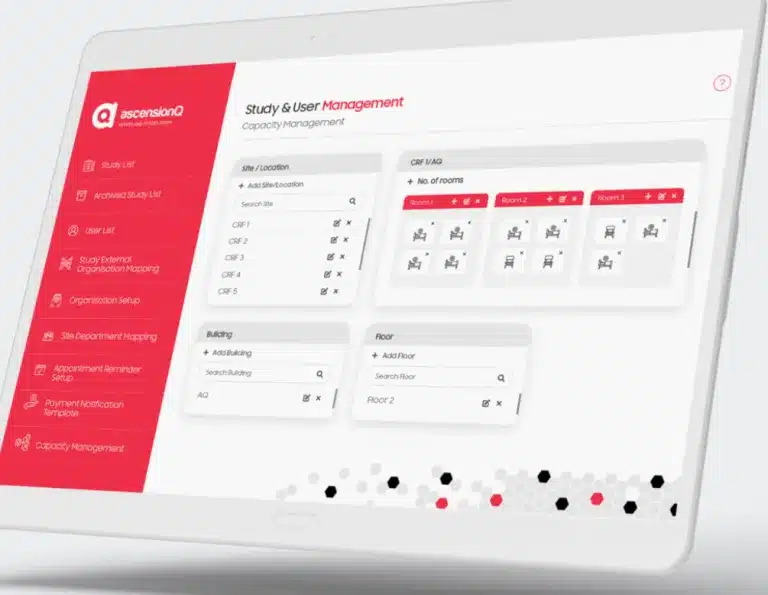Clinical research is a dynamic and ever-evolving field in which an efficient management of clinical trials is essential for ensuring the safety of participants. All this while maintaining data integrity and accelerating the drug development process. Therefore, Clinical Trial Management Systems (CTMS) have emerged as a crucial tool to facilitate clinical research.
In this article, we will explore what CTMS is, what are benefits of using CTMS, and which are some of the top CTMS software available.
What is CTMS in Clinical Trials?
Clinical Trial Management System (CTMS) is a software solution designed to streamline and optimize various aspects of clinical trial management in real time.
Basically, the best CTMS assists in planning, tracking, managing, and reporting on clinical trials. All for helping research teams and organizations to conduct trials more effectively and efficiently.
The key functions of a well-built CTMS in clinical research include:
Study Planning – CTMS assists in the planning phase, enabling researchers to define the scope, objectives, and timeline of the clinical trial. It ensures appropriate budgeting and resource allocation, allowing to follow a structured and organized approach.
Site Selection – CTMS helps to identify suitable trial sites and asses their capabilities, including infrastructure, patient population, and regulatory compliance.
Patient Recruitment – CTMS helps in tracking the recruitment process, ensuring the timely enrollment of participants and maintaining a database of eligible candidates.
Data Management – CTMS allows for the collection, management, and analysis of trial data. It ensures data integrity, compliance with regulations, and secure data storage.
Communication and Collaboration – CTMS facilitates effective communication among trial stakeholders, such as investigators, sponsors, and regulatory agencies. They allow for document sharing, task assignment, and real-time updates.
Monitoring and Compliance – CTMS supports the monitoring of trial progress, protocol adherence, and regulatory compliance. It can generate alerts and reminders for important milestones and tasks.
Reporting and Analytics – CTMS helps generate error-free comprehensive reports, which are crucial for regulatory submissions, decision-making, and evaluating trial outcomes.
Benefits of Using CTMS in Clinical Research
CTMS is not just important but essential in clinical research. It is critical for maintaining the quality, validity, and ethical integrity of clinical trials.
Without effective CTMs, there is a significant risk of data inaccuracies, regulatory non-compliance, budgetary issues, and compromised research outcomes. Therefore, investing in robust CTM systems and practices is a fundamental requirement for conducting credible and impactful clinical research in the field of healthcare and medicine.
Here are a few points that highlight the benefits of CTMS, helping you understand why use CTMS in clinical research:
- CTMS can significantly enhance the efficiency of clinical research by streamlining various processes, reducing manual tasks, and automating data management.
- Using CTMS ensures the accuracy and integrity of trial data through built-in data validation and error-checking features, reducing the likelihood of errors.
- CTMS promotes better communication and collaboration among trial stakeholders, ensuring everyone is on the same page and tasks are completed on time.
- Compliance with regulatory standards and guidelines is critical in clinical trials, and CTMS helps maintain compliance throughout the trial.
- Researchers can monitor trial progress in real time, enabling them to make timely decisions and take corrective actions if necessary.
- CTMS provides tools for data analysis and reporting, helping researchers gain insights from trial data for decision-making and regulatory submissions.
- Ensuring data integrity and compliance, CTMS contributes to patient safety, a paramount concern in clinical research.
- CTMS accelerates the clinical trial process, leading to quicker drug development and potentially faster access to new treatments for patients.
- Efficient resource allocation and management, along with faster trial timelines, can lead to cost savings for research organizations.
Choosing the Best CTMS for Clinical Trial Research
Indeed, selecting the right Clinical Trial Management System (CTMS) is crucial for a successful clinical trial. You can not afford any mistakes while choosing it.
 Here’s a quick checklist you need to consider when you choose a CTMS:
Here’s a quick checklist you need to consider when you choose a CTMS:
Identify Your Needs – Define your requirements, trial size, budget, and integration needs.
User-Friendly – Choose a well-built CTMS system with an intuitive interface for easy adoption.
Regulatory Compliance – Ensure it complies with 21 CFR Part 11 and global regulations.
Integration – Verify that the CTMS integrates smoothly with other tools you use in clinical research.
Data Security – Prioritize robust data security and multiple privacy features to ensure risk-free research.
Reporting – Look for strong reporting and analytics capabilities.
Support – Opt for a vendor with excellent customer support and training resources.
Scalability – Ensure it can grow with your organization.
User Feedback – Check user reviews and seek references.
Cost and ROI – Calculate total ownership costs and potential ROI.
Consider consulting with industry experts who either offer CTMS solutions or have hands-on experience with it. Their insights can provide valuable guidance in making an informed decision when choosing the best CTMS for your clinical trial needs.
CTMS Importance – Final Words
Clinical Trial Management Systems (CTMS) serve as the backbone of the clinical research landscape. They are akin to the conductors of a sophisticated orchestra, orchestrating the myriad components of a clinical trial with finesse.
CTMS ensures data precision, regulatory alignment, seamless multi-location collaboration, and resource optimization. Selecting the apt CTMS is pivotal, considering variables such as bespoke requirements, usability, integration capabilities, user feedback, scalability, support, and cost-effectiveness.
So, if you want to enhance your journey toward elevating healthcare standards, it is necessary to leverage a well-designed, future-proof CTMS.
